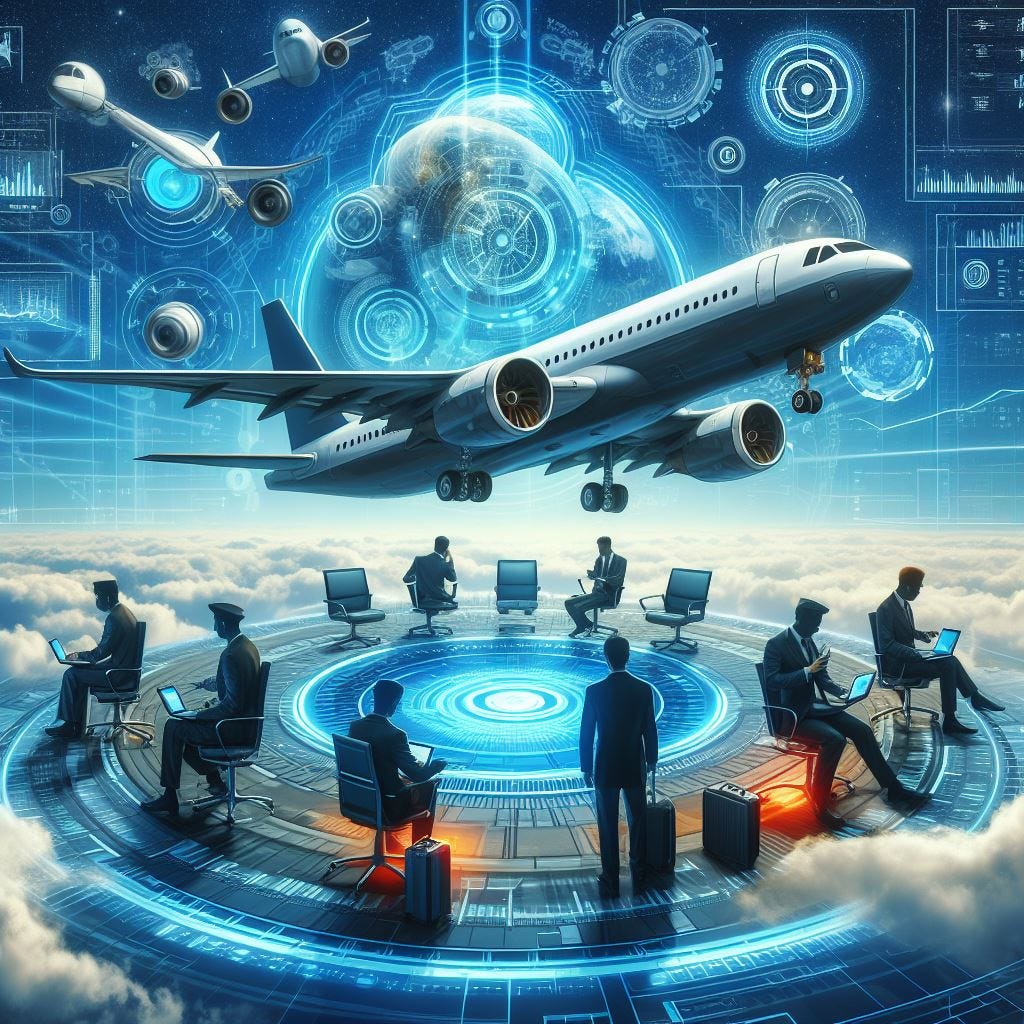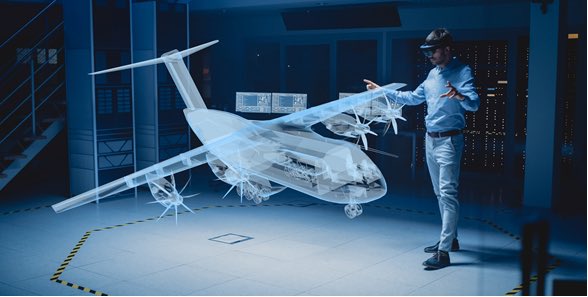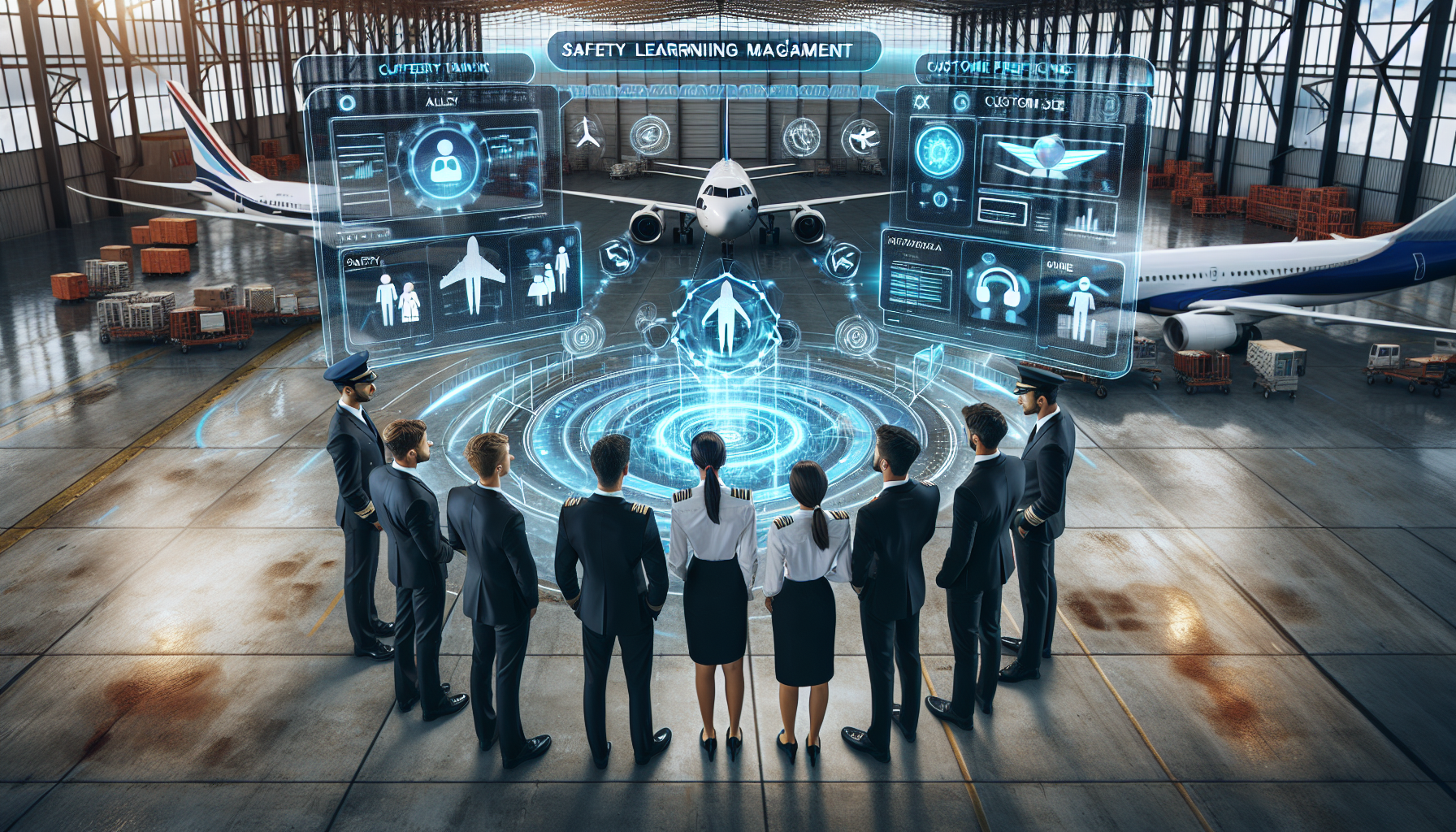"Beyond the Horizon: Innovations in Airline Talent Management"
Human resources (HR) is undergoing unparalleled transformation at a time when the digital revolution is setting a new standard. HR departments, which are the foundation of personnel management and corporate strategy, are using technology to improve, simplify, and even completely reimagine their basic functions. As a result, the idea of technological talent management has become quite popular in the HR industry, giving businesses a big advantage in attracting, retaining, and nurturing top talent.
In order to discover high-potential candidates and foresee future performance, airlines are increasingly turning to data-driven techniques and predictive analytics. Airlines can assure a better fit between positions and candidates and increase the accuracy of their recruitment decisions by examining data from several sources, such as assessments, resumes, and performance metrics.
Here are some key innovations in this area:
Gamification in Training and Development: Gamification is the process that involves incorporating components of game functionality and design to training programs in order to increase motivation and engagement. To make training more engaging, entertaining, and efficient, airlines are utilizing gamification tactics including virtual reality scenarios, interactive quizzes, and simulations. This strategy can help staff members acquire new skills and retain existing knowledge.
Personalized Learning Platforms: Airlines are using AI and machine learning algorithms to give training information that is tailored to each learner's preferences, performance, and unique learning style through the use of personalized learning platforms. These platforms improve the efficacy and efficiency of learning and development programs by giving staff members access to training materials whenever they want, from anywhere, and at their own speed.
Augmented Reality (AR) for Maintenance Training: By combining digital content, such as instructional videos and schematics, on actual equipment and surroundings, augmented reality (AR) technology is being utilized to give maintenance professionals practical training. As a result, technicians can acquire complicated procedures in a more engaging and participatory manner, strengthening their abilities and cutting down on training time.
Remote Work and Virtual Teams: The emergence of virtual teams and remote work has made it possible for airlines to hire staff from around the world and lessen geographic restrictions. By enabling smooth communication and cooperation between geographically separated teams, virtual collaboration tools and platforms help airlines take advantage of a variety of skill sets and increase workforce flexibility.
Blockchain for Credential Verification: Research is being done on the use of blockchain technology for the secure, transparent management of employee qualifications, certifications, and credentials. Airlines can confirm the authenticity of personnel qualifications, improve the hiring process, and save administrative overhead by keeping credentials on a tamper-proof blockchain database.



Airlines can ensure their long-term success in a competitive and ever-changing market by adopting these innovations to produce a more competent, engaged, and future-proof workforce.
ReplyDeleteCertainly Dilshad. Thank you for your valuable insight.
DeleteWell highlighted these innovative approaches to talent management in the airline industry. Technology is revolutionizing the aviation industry by enhancing training, recruitment processes, and fostering a skilled workforce, thereby enhancing efficiency and performance.
ReplyDeleteYes Minoshi, Technology has become a crucial part of the aviation industry as a whole.
DeleteInteresting points, Shedric. How are aviation professionals finding it to adapt to the blockchain based systems and its complex interfaces? For pilots especially, there are discussions that this technology is hard and unfamiliar to use as the training was too complex. Therefore it is noted in studies that some airline personnel are quite resistant to blockchain systems and even showed a reluctance to it.
ReplyDeleteHi Anjalika, Yes Aviation professionals are finding it challenging to adapt to blockchain-based systems and their complex interfaces. The technology is relatively new to the industry, requiring extensive training and understanding of its complexness. Focusing on education, training, and addressing concerns about complexity and unfamiliarity will help to over this(Aerobloc,2023)
DeleteYes, by analyzing data, airlines may obtain insights about employee performance, preferences, and potential, allowing them to make more informed recruiting, training, and career development decisions.
ReplyDeleteCorrect Arundathi. The evolving technology has helped the industry with this cause.
DeleteTrue. Also by Predictive analytics for identifying future leaders, customized training modules, and AI-driven recruitment platforms are some examples of innovations in airline people management. Through the promotion of an environment that values ongoing education and flexibility, airlines can develop highly competent workforces who are able to handle changing market conditions and provide outstanding traveler experiences.
ReplyDeleteAgree with you Prasani. Certainly this powerful tool aids to find the future leaders and together with top talent in the organization they can stand solid in this competitive market.
DeleteThe article highlights the use of data in assisting the recruiting process. How can HR departments ensure the use of ethical methods for gathering data and maintain transparency in the utilization of applicant data?
ReplyDeleteHR departments can ensure the ethical use of data by establishing clear policies and procedures, obtaining informed consent from applicants, prioritizing data security, and providing transparency about how applicant data is collected, stored, and utilized (Deependra Singh,2023).
DeleteThis use case highlights how blockchain technology has the potential to revolutionize credential management in a variety of industries, including healthcare, education, and finance, in addition to the aviation industry. We anticipate that blockchain-based credential verification systems will become widely used as the technology develops, bringing in a new era of transparency and trust in workforce management.
ReplyDeleteYes Neashara, blockchain is relatively a new technology but with time all industries including Airline Industry to embrace it as it ensures the integrity and security of digital credentials, making them resistant to fraud and unauthorized alteration.
DeleteThis is a great summary of how airlines are using technology to improve HR! It highlights using data for better hiring, gamified training for engagement, and even virtual reality for maintenance training. Cool stuff!
ReplyDeleteThank you for you insightful feedback.
ReplyDeleteThe article highlights the significant transformations occurring in human resources management within the airline industry, driven by advancements in technology. By embracing data-driven techniques and predictive analytics, airlines are revolutionizing their talent management strategies to attract, retain, and develop top talent effectively.
ReplyDeleteThe rise of remote work and virtual teams has enabled airlines to tap into a global talent pool and overcome geographical constraints. Virtual collaboration tools facilitate seamless communication and cooperation among dispersed teams, fostering workforce flexibility and diversity.(IdealStaffs Consulting, 2023)
Overall, these innovations reflect the industry's commitment to leveraging technology to optimize talent management practices, ultimately driving operational efficiency, employee engagement, and organizational success.